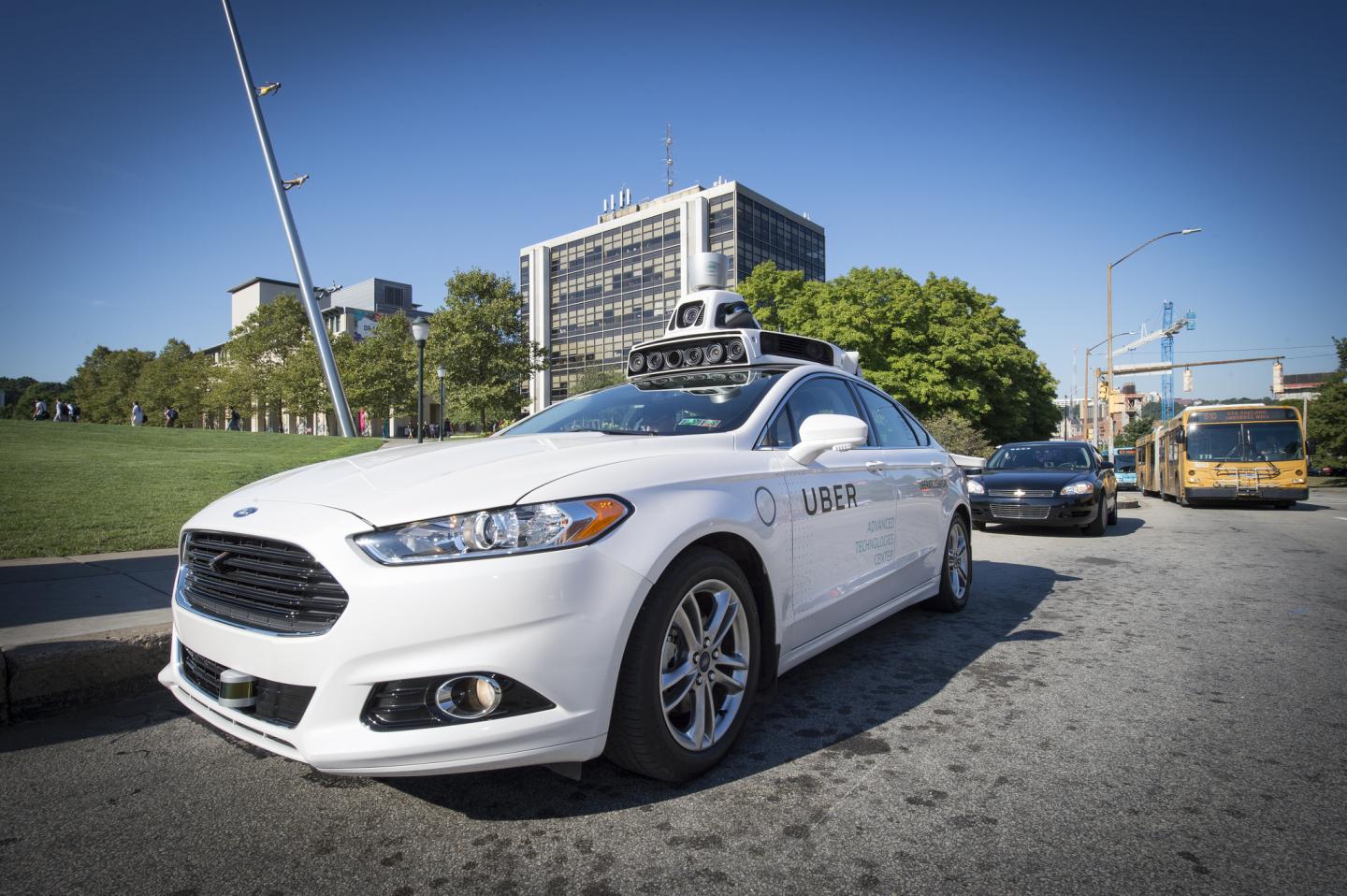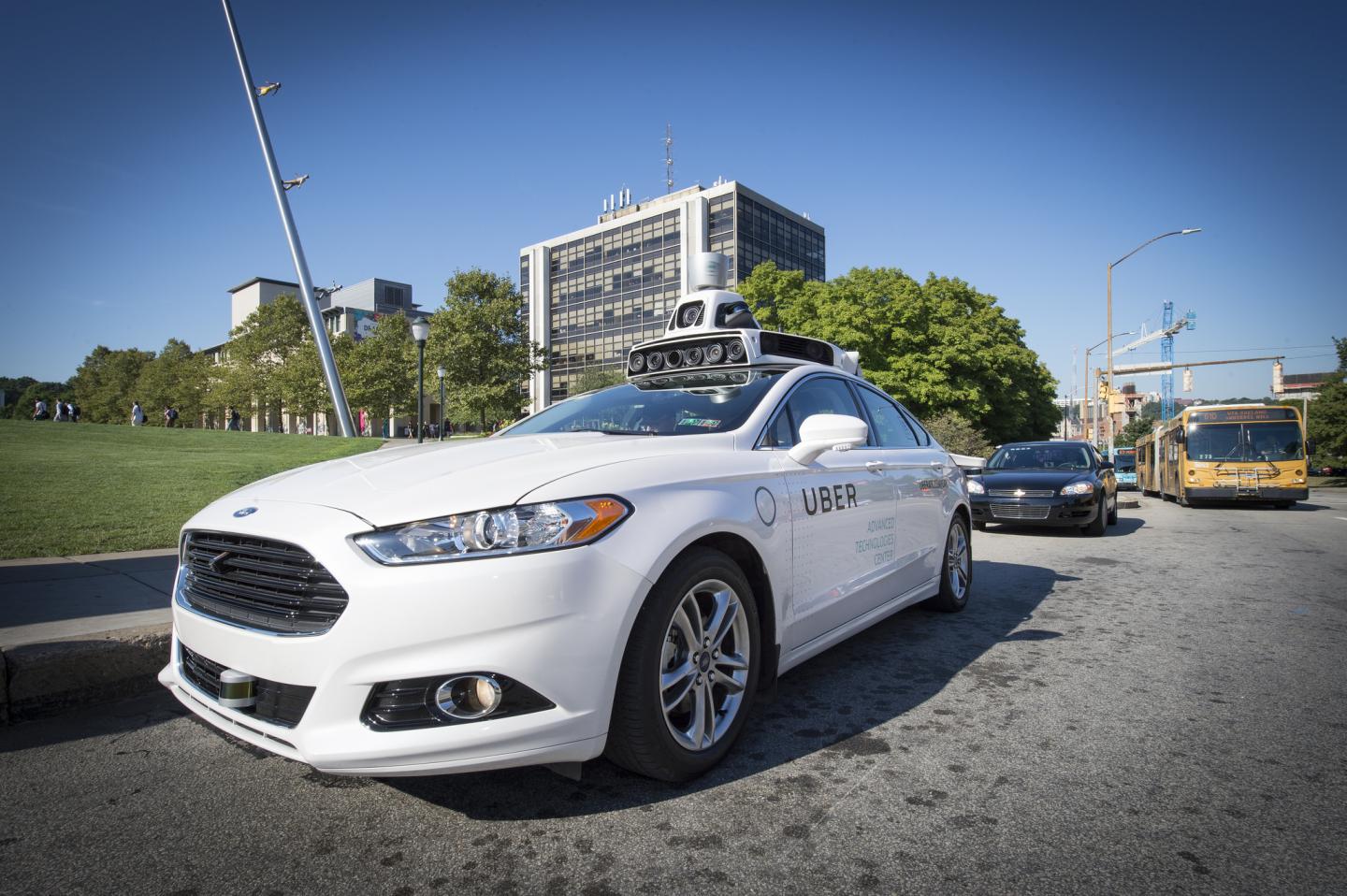
Credit: Carnegie Mellon University
Autonomous systems — like driverless cars — perform tasks that previously could only be performed by humans. In a new IEEE Intelligent Systems Expert Opinion piece, Carnegie Mellon University artificial intelligence ethics experts David Danks and Alex John London argue that current safety regulations do not plan for these systems and are therefore ill-equipped to ensure that autonomous systems will perform safely and reliably.
"Currently, we ensure safety on the roads by regulating the performance of the various mechanical systems of vehicles and by licensing drivers" said London, professor of philosophy and director of the Center for Ethics and Policy in the Dietrich College of Humanities and Social Sciences. "When cars drive themselves we have no comparable system for evaluating the safety and reliability of their autonomous driving systems."
Danks and London point to the Department of Transportation's recent attempt to develop safety regulations for driverless cars as an example of traditional guidelines that do not adequately test and monitor the novel capabilities of autonomous systems. Instead, they suggest creating a staged, dynamic system that resembles the regulatory and approval process for drugs and medical devices, including a robust system for post-approval monitoring.
"Self-driving cars and autonomous systems are rapidly spreading through every part of society, but their successful use depends on whether we can trust and understand them," said Danks, the L.L. Thurstone Professor of Philosophy and Psychology and head of the Department of Philosophy. "We, as a society, need to find new ways to monitor and guide the development and implementation of these autonomous systems."
The phased process Danks and London propose would begin with "pre-clinical trials," or testing in simulated environments, such as self-driving cars navigating varied landscapes and climates. This would provide information about how the autonomous system makes decisions in a wide range of contexts, so that we can understand how they might act in future, new situations.
Acceptable performance would permit the system to move on to "in-human" studies through a limited introduction into real-world environments with trained human "co-pilots." Successful trials in these targeted environments would then lead to monitored, permit-based testing, and further easing of restrictions as performance goals were met.
Danks and London propose that this regulatory system should be modeled and managed similarly to how the Food and Drug Administration regulates the drug approval process.
"Autonomous vehicles have the potential to save lives and increase economic productivity. But these benefits won't be realized unless the public has credible assurance that such systems are safe and reliable," said London.
###
Media Contact
Shilo Rea
[email protected]
412-268-6094
@CMUScience
http://www.cmu.edu
############
Story Source: Materials provided by Scienmag





